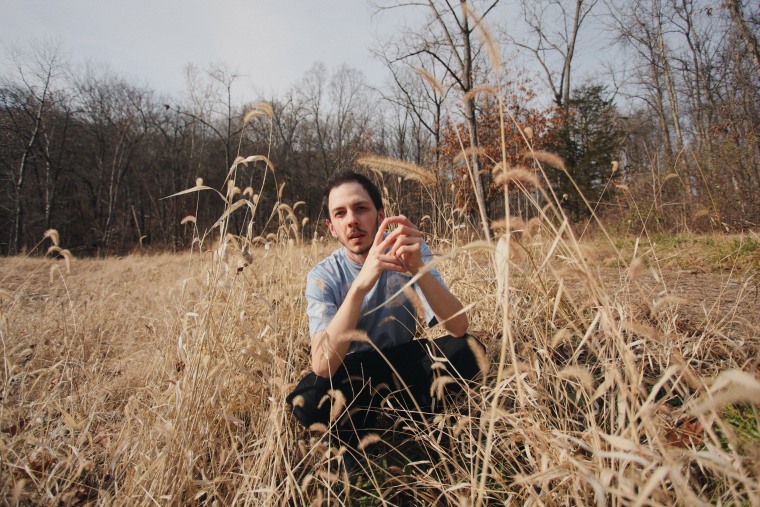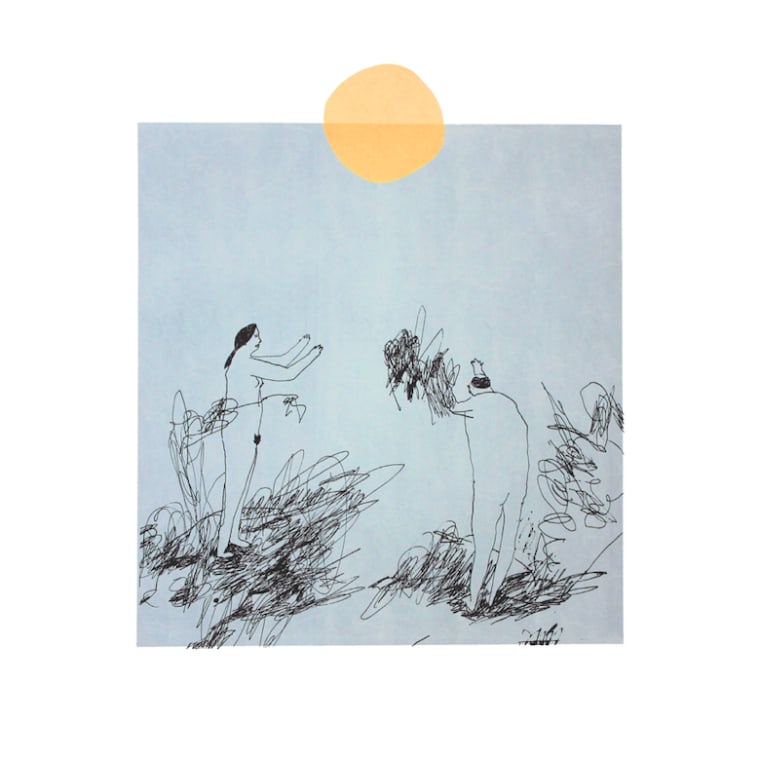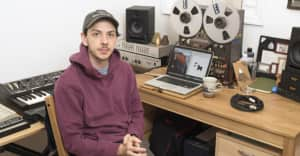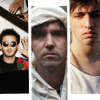 Photo c/o Dave Benton.
Photo c/o Dave Benton.
Two years ago Dave Benton, the 28-year-old singer-songwriter who records under the name Trace Mountains, was hanging out around a venue in Groningen in the Netherlands, getting ready to play another show with his then-band LVL UP in the middle of a lengthy European tour, when he was plunged into a moment of depression. The incident is still vivid in his head now, though the things he does remember are, he says, still too personal to share. “I was just depressed in general, crying a lot, low mood,” he tells me in a text message two days after we speak on the phone.
He revisits the moment, though, on “Lost in the Country,” the title track from his second album as Trace Mountains, due out April 10 via Lame-O Records (pre-order it here). The near-six-minute centerpiece of the record, “Lost in the Country,” premiering below, has Benton consciously channeling Kurt Vile, all stream-of-consciousness lyrics, metronomic backbone, and ambivalent guitars. The difference between Benton and Vile is that the former doesn't want to tap into slacker nirvana, instead using run-on thoughts as a way of expressing discomfort and probing at his own memories. “I used the venue wifi / I checked my email twice as I sat and cried / The singer from the other band asked if i was alright, and they sat with me a while,” he sings in a disarmingly conversational tone before opening up to a more peaceful thought: "And there it seemed that we were going to be linked forever / In a deeper understanding of the ways we've been moving around."
Listen to “Lost in the Country” below and read The FADER’s conversation with Benton — on the end of LVL UP, his new approach on Lost in the Country, and the ups and downs of touring — after the jump.
LVL UP broke up right around the time you started writing these songs. Did losing that collaborative outlet change the way you approached writing solo?
With LVL UP, it wasn't so collaborative — we all wrote our own songs on our own and then just brought them to the band. With Trace Mountains, the songs aren't really informed by other people's work. It's just like more of a linear thing.
You've also said that this Trace Mountains record is quite collaborative record as well. What does that look like?
Well, I am not really the solo artist type who will record everything themselves or do it all in solitude. iIt really helps me to have a consistent band to work with. My friend Jim [Hill, guitarist], who's been in the band for a long time, writes a lot of guitar parts; my drummer Greg writes all the drum parts. But I pretty much bring the songs fully finished to them and we flesh it out and arrange it together.
So lyrically and melodically you're out on your own?
Yeah, I would say that I'm the only songwriter but we all arrange the songs and perform them on the recordings like as a band. I think that is like really helpful for me in like fully realizing the finished product.
What do you think is the key lyrical difference between this record and A Partner To Lean On?
On the last one, I was writing a lot more made up stories — I don't think it was really as much about me. This one is a little bit more personal. I wanted to take a little bit more of a personal approach and look a little more inward.
Why do you think you wanted to do that?
My band mate Susannah [Cutler, vocals] was commenting on the last record and saying, "Well, I don't really know what the song is about." It got me thinking about how, over the years, I’ve gotten a little bit more guarded in my songwriting. I wanted to take a less guarded approach and be a little bit more emotionally open.
That can be quite scary.
I guess it is scary. I don't know if you ever feel like you have fully accomplished that, but I think it's just a good goal to have, to be honest with yourself
There are parts of this record that go beyond honesty and fall into self-analysis, particularly "Lost in the Country." It’s one example of you not coming in with fully formed answers at the beginning of the song. Is that how it feels when you're writing it — that you don't come to it with your answer already set, that you're investigating little parts of yourself in the songs?
I think that's always what it is for me. I don't think I really write songs that are about anything physically. When I start to write a song, I don't really have an idea. It's more like the whole approach is figuring out what the song is. I think that that assessment of it makes a lot of sense, because I write the songs from beginning to end if it feels like it's me trying to figure something out, I think that's exactly what's going on. I'm trying to figure out what the song is and go a little bit deeper as the song progresses.
At points, as well as looking to deeper into yourself, you also create a very real sense of place outside of yourself — you get quite specific about details and locations. Is that conscious? Are you trying to like ground the listener in a particular place?
Specifically on the title track, talking about the moment on tour in the Netherlands, I was in a really rough spot there. I thought it applied to what the song was trying to get at, and I think it can be a good tool to use details like that for the listener. I think it all sort of happened accidentally.
Did you realize at the time that the moment in The Netherlands was an apt metaphor for how you were feeling at that time in your life?
No, definitely not. I was way too far in my own head to even realize what was going on. But it was a moment that stuck with me. I don't exactly know what [the song] is about, but it's definitely got something to do with music and my experience touring. I kind of wanted to honor that little moment.
The lyric sheet reads like stream-of-consciousness writing. Is that an accurate representation of the way that your head works? Run-on thoughts?
I think it's an accurate representation of how I approach things. Also, I never really listened to Kurt Vile before, but I feel like he does a lot of that. I maybe started listening to Kurt Vile a year ago, but I feel like his songwriting influenced that. I wanted to delve a bit more into that type of lyricism, because I think my process already utilized that — I just didn't really like fully go there. I really loved “Bassackwards.”
Do you find touring to be a negative experience overall?
No. I really like touring and I'm really excited to play some shows around this record. It can be a negative experience but I think that really only happens when you push yourself beyond your limits. LVL UP did a US tour right into a European tour, and I really hated my experience in Europe because I was just done. It sucks, because that's the only time I've ever toured in Europe, and it was just a miserable experience. But I really like getting in the groove of playing a show every night. I think it makes playing shows a lot more fun.
Trace Mountains - Lost in the Country

1. Rock & Roll
2. Dog Country
3. Me & May
4. I Am Leaving You
5. Cooper's Dream
6. Lost In The Country
7. Benji
8. Fallin' Rain
9. Absurdity
10. Turn To Blue


